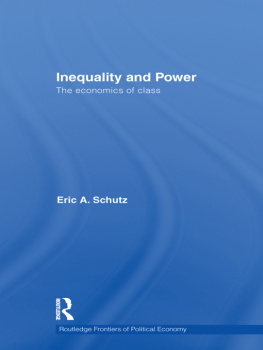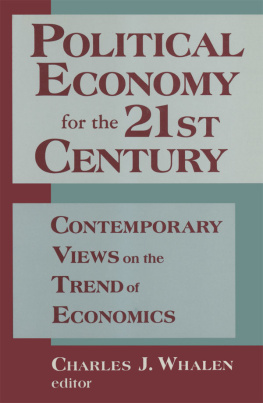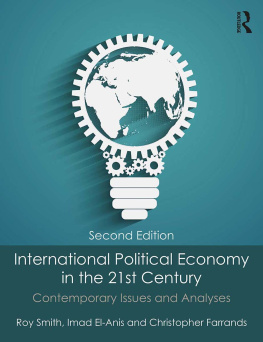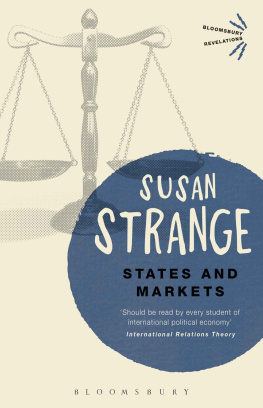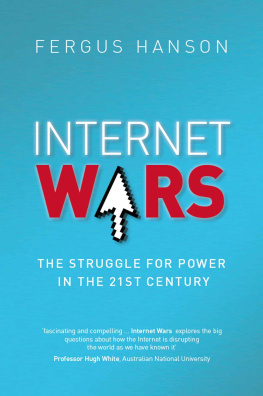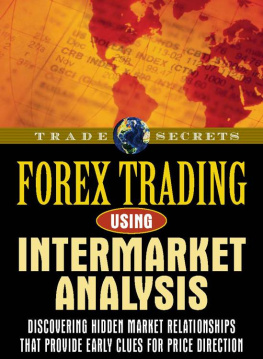Eric A. Schutz - Markets and Power: The 21st Century Command Economy
Here you can read online Eric A. Schutz - Markets and Power: The 21st Century Command Economy full text of the book (entire story) in english for free. Download pdf and epub, get meaning, cover and reviews about this ebook. year: 2001, publisher: M.E. Sharpe, genre: Politics. Description of the work, (preface) as well as reviews are available. Best literature library LitArk.com created for fans of good reading and offers a wide selection of genres:
Romance novel
Science fiction
Adventure
Detective
Science
History
Home and family
Prose
Art
Politics
Computer
Non-fiction
Religion
Business
Children
Humor
Choose a favorite category and find really read worthwhile books. Enjoy immersion in the world of imagination, feel the emotions of the characters or learn something new for yourself, make an fascinating discovery.

- Book:Markets and Power: The 21st Century Command Economy
- Author:
- Publisher:M.E. Sharpe
- Genre:
- Year:2001
- Rating:5 / 5
- Favourites:Add to favourites
- Your mark:
- 100
- 1
- 2
- 3
- 4
- 5
Markets and Power: The 21st Century Command Economy: summary, description and annotation
We offer to read an annotation, description, summary or preface (depends on what the author of the book "Markets and Power: The 21st Century Command Economy" wrote himself). If you haven't found the necessary information about the book — write in the comments, we will try to find it.
Markets and Power: The 21st Century Command Economy — read online for free the complete book (whole text) full work
Below is the text of the book, divided by pages. System saving the place of the last page read, allows you to conveniently read the book "Markets and Power: The 21st Century Command Economy" online for free, without having to search again every time where you left off. Put a bookmark, and you can go to the page where you finished reading at any time.
Font size:
Interval:
Bookmark:



To Cathy, Alex, and Megan, and to Mom, Dad, and Adrienne, with love
List of Tables and Figures
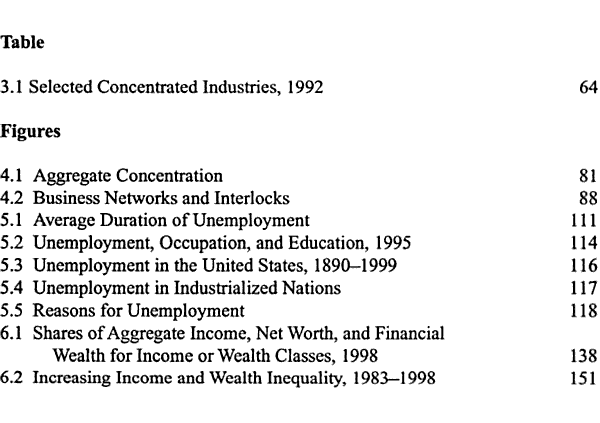

Introduction
For most people, "power" is so elementary an idea that, while it may be explicitly expressed only seldom, it infuses our every thought on human relations in one form or another. Sometimes it is a difficult concept to be very clear about, sometimes even taboo as well. When offered as explanation or description of the relationship between two people, or of any aspect of social life in general, power is rarely denied. Some do deny it, however, or at least deny that it is very helpful for understanding the most interesting or important things in human life. This book was written in an effort to counter the denial of power as a useful or meaningful concept by one particular such group: those in the mainstream of the field of economics. Because of the denial of power as a useful concept in mainstream economics, the study of that subject encourages the profound misconception among those who undertake it that modern market economies have somehow overcome the age-old problem of social power. I offer this book to students and others interested in economics as an antidote to that misconception.
While mainstream economists deny the usefulness of the concept of power, in the rest of the social sciences power is given much the same kind of attention as is the concept of the molecule in the fields of chemistry and biology. Indeed, those who study politics, sociology, anthropology, and history find themselves so repeatedly confronted with issues of power that for them one more book on that subject may be of little additional interest. Of course, even those already well acquainted with the idea of power might nonetheless find this book helpful, for it concerns the most important forms that social power takes in market economies from the viewpoint of modern economics that is, in terms of the special comprehension that economists have of how markets work. Among all the social sciences, economics is the one most especially devoted to the study of market systems, and even though many economists might deny it, theirs is the field from which one would expect the most elucidation on how structures of power function in market societies. This book is intended to help fulfill such expectations.
Economics and Power
Where the concept of power has been an important element of inquiry, it has brought with it much controversy. Who has it and who does not? What are its bases? What are its possibilitieswhat does having it permit, what does lacking it prohibit? Of what exactly is it constitutedhow does one know when one has it or lacks it? Is it "good" or "bad"? These are questions over which great argument has long coursed in all the social sciences, not to mention in philosophy and literature, but the mainstream of modern economics is uniquely silent on such issues. How can a social science not only avoid engaging in questions about social power but eschew its use as a theoretical construction altogether? Isn't power an essential element of all human relationships?
The term power carries three distinct but closely related meanings. We refer, first, to an individual's (or a group's) power to do some particular thing or to achieve desired ends in general, the capacity to act decisively in the world. This sort of power is closest in meaning to the physical power of the natural sciences, the ability to exert energy to accomplish things, and in humans may be directly related, of course, to a person's physical or intellectual strength. Second, in a more explicitly social sense of the term, we refer to power as the ability to influence other people, to get them to act or think in ways they would not otherwise. Power as the capacity to affect other people is indeed the very essence of social relations: Only to the extent that individuals affect each other can there even be "social relations" among them. Finally, we refer to power over people, in which an individual or group not only influences others but does so in a dominating way, getting them to do things that they do not wish to do or that are not in their own interest to do. This sort of power is, of course, strongly negative in connotation, and is the essence of power as a social problem as well as a philosophical and moral concern.
I will refer to these three sorts of power as, respectively, the power of accomplishment, influence or the power to influence, and dominating power. Perhaps not surprisingly, the last of these, the most problematic, will be the main focus of this book. One might ask, if dominating power is the main issue, why not then simply refer to it as "domination," an obviously much more precise term that immediately makes clear my intentionswhy not just title my book Markets and Domination! I prefer to use the much broader term "power" because while domination is distinct in meaning from the other two kinds of power, it needs emphasizing that it is so closely tied to them that the three kinds of power are, in an essential way, all of a piece, they are essentially one. Having power of accomplishment generally implies having power to influence othersand conversely, of course, being able to influence people not only requires that one be able to accomplish specific things, it is itself a kind of accomplishment. Similarly, the power to influence people generally implies also the power to dominate them to one degree or another and conversely, domination not only is a particular form of influence but also requires that one be able to influence people in certain ways. Using the term power inclines one to ask about what specific connections there are among its three forms, connections that, as will become evident in this book, I believe are absolutely essential in an inquiry the ultimate concern of which is domination per se. Alternatively, looking at "power," rather than at "domination," inclines one to consider at the same time the particular powers people may have that enable them to dominate others, as well as at the particular powers that those who are dominated lack.
How can any modern social science almost totally avoid both discussion about and analytic use of the concept of power? First, let me clarify that not all economists avoid considering power in their workmerely most of those working in the mainstream of the field.' In the writings of those representing the now dominant, politically conservative schools of economic thought neoclassicals, monetarists, and new classicalsthe concept of power virtually never appears, not even in analyses in which the presence of power is pretty obvious, for example, that of market monopoly. Those representing the most conservative of all schools of economic thought, the Austrians, do discuss matters of power, but virtually always restrict their discussion to issues of the dominating power of government. For them, significant power relationships among private individuals and organizations in the market economy simply do not exist.
Font size:
Interval:
Bookmark:
Similar books «Markets and Power: The 21st Century Command Economy»
Look at similar books to Markets and Power: The 21st Century Command Economy. We have selected literature similar in name and meaning in the hope of providing readers with more options to find new, interesting, not yet read works.
Discussion, reviews of the book Markets and Power: The 21st Century Command Economy and just readers' own opinions. Leave your comments, write what you think about the work, its meaning or the main characters. Specify what exactly you liked and what you didn't like, and why you think so.

